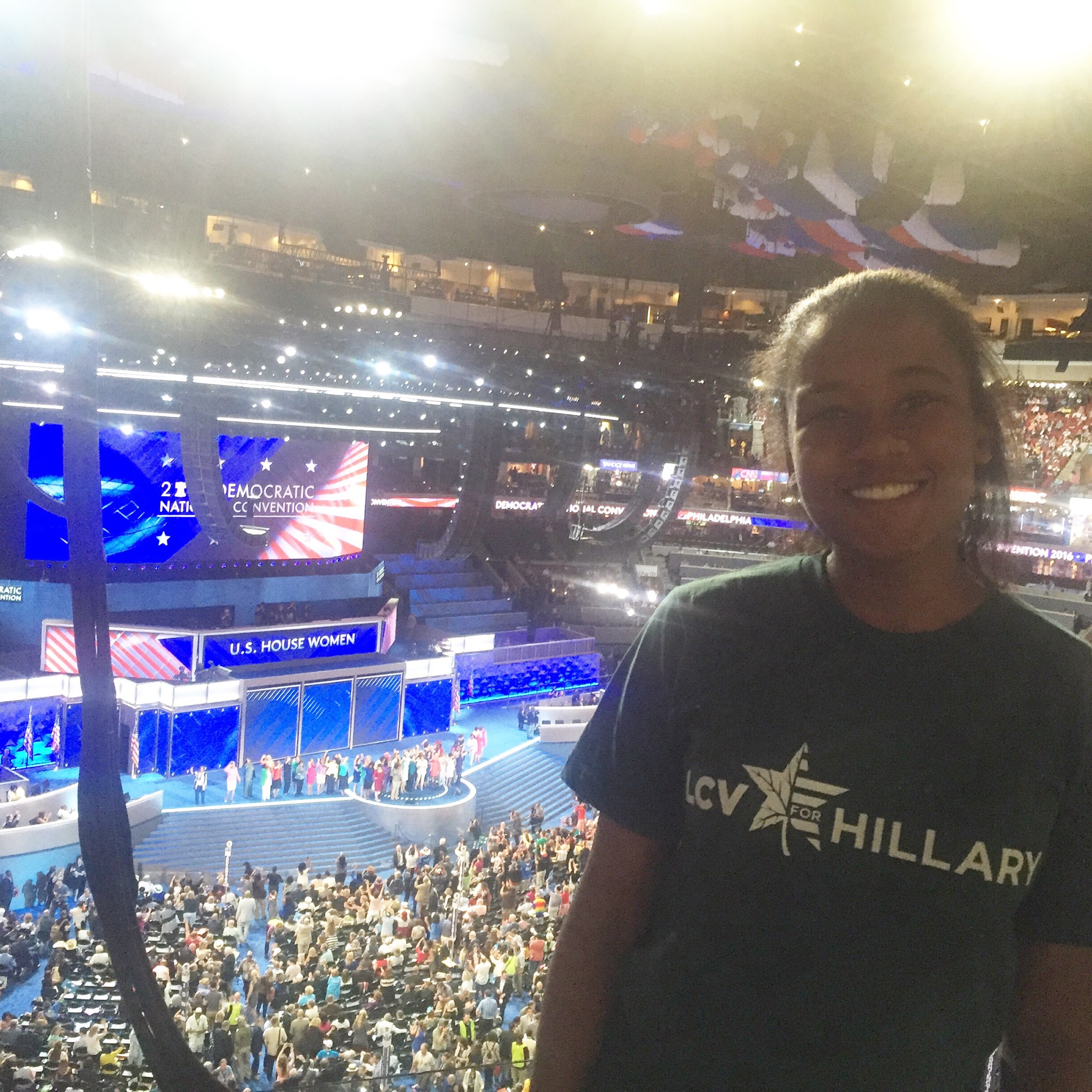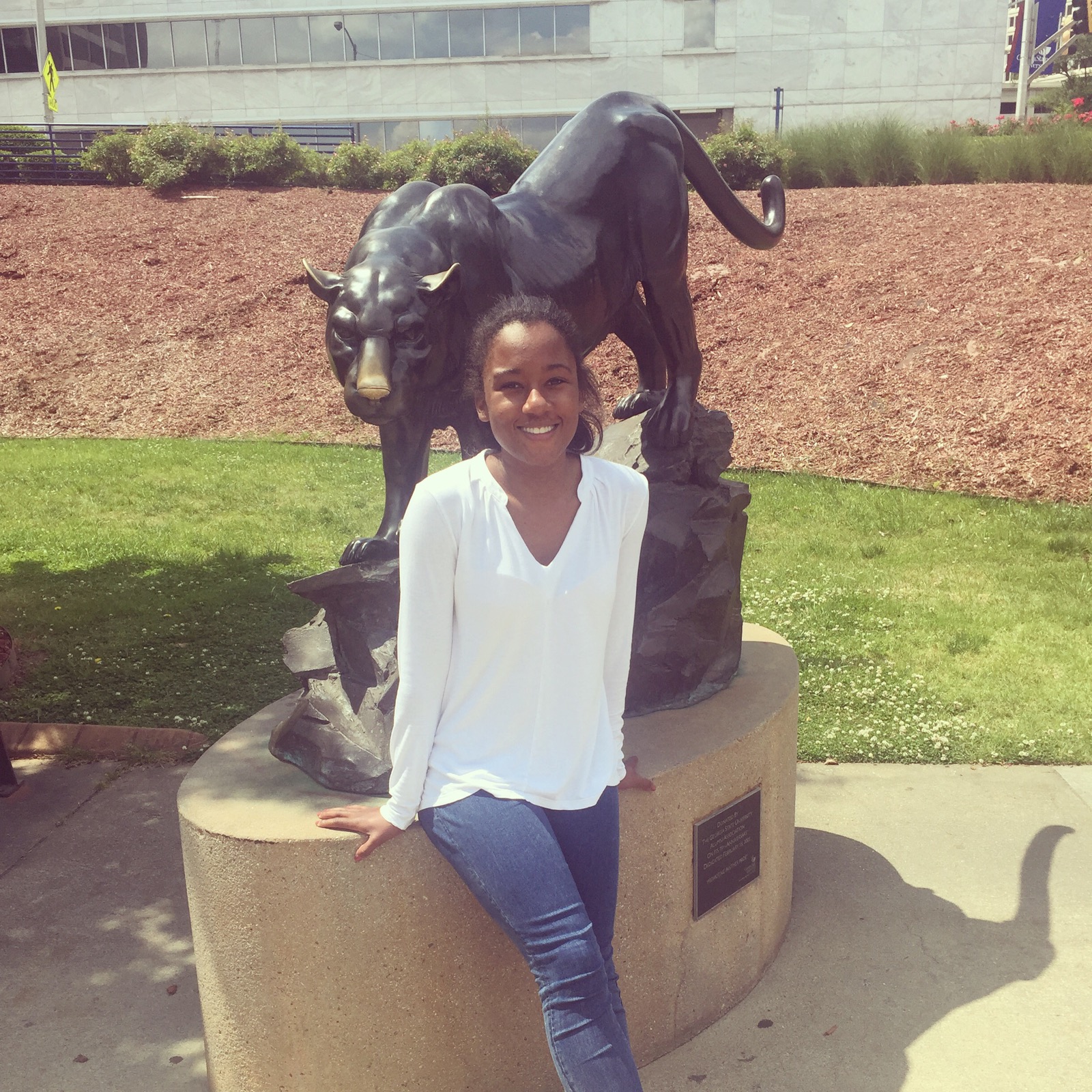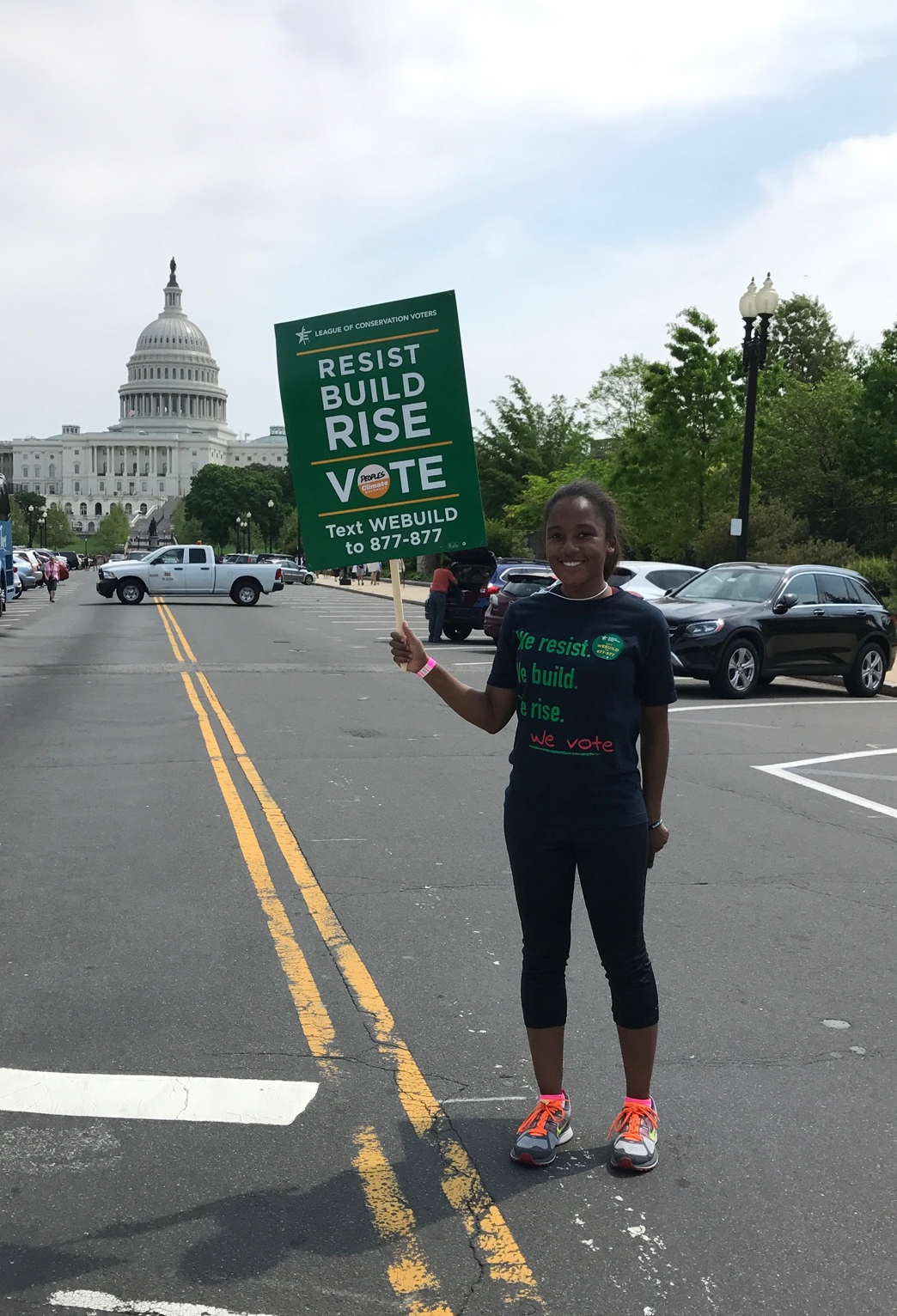Celebrating Earth Day: a Brief History and a Roundup of New Wins for People and the Planet
Apr 22, 2024
I’m not your typical environmentalist. In fact, before becoming the campaigns associate at the League of Conservation Voters (LCV), I never would have called myself an environmentalist. Sure, I have always acknowledged the importance of conservation and renewable energy, but, until recently, I hadn’t personally connected with the environmental movement; I hadn’t seen how it supports the people and issues that I care deeply about. But spending over two years at LCV has changed all that.
 While I haven’t always considered myself an environmentalist, I’ve long considered myself a political activist. In college at Georgia State University (GSU), it became clear to me that our country’s political discourse often forgets and excludes communities of color. And these communities aren’t just excluded from the conversation, they’re underrepresented as lawmakers who make decisions that impact our communities too. As a woman of color, I felt the enormity of this: I needed to act, I needed to help chip away at the deeply entrenched racial inequities that have, for so long, kept power concentrated in the hands of those who have long and wildly prospered, those who have too often neglected me as a woman of color.
While I haven’t always considered myself an environmentalist, I’ve long considered myself a political activist. In college at Georgia State University (GSU), it became clear to me that our country’s political discourse often forgets and excludes communities of color. And these communities aren’t just excluded from the conversation, they’re underrepresented as lawmakers who make decisions that impact our communities too. As a woman of color, I felt the enormity of this: I needed to act, I needed to help chip away at the deeply entrenched racial inequities that have, for so long, kept power concentrated in the hands of those who have long and wildly prospered, those who have too often neglected me as a woman of color.
But how does one college student tackle the political imbalances we’ve inherited—and often perpetuated—from a long history of structural racism? To say the least, I was overwhelmed by this question. However, a simple field trip in college was one of the most impactful events that sparked my political career.
 At GSU, I had the benefit of living in downtown Atlanta. I was constantly surrounded by what remains of the civil rights movement, successful black businesses, and a community that I, and so many other GSU students, overlooked. It wasn’t until I attended an introductory African American Studies class that I began to connect with my surroundings—my professor made our campus’ wealth of knowledge a regular topic of discussion for our class, and he was eager to share this history in the best way he knew how: interactively. Our class went on a walking tour.
At GSU, I had the benefit of living in downtown Atlanta. I was constantly surrounded by what remains of the civil rights movement, successful black businesses, and a community that I, and so many other GSU students, overlooked. It wasn’t until I attended an introductory African American Studies class that I began to connect with my surroundings—my professor made our campus’ wealth of knowledge a regular topic of discussion for our class, and he was eager to share this history in the best way he knew how: interactively. Our class went on a walking tour.
Midway through our tour of Auburn Avenue, a nationally recognized area in Atlanta remembered for its economic success, we went inside of the historical African American mason building. Inside, a director of the Georgia House Democratic Caucus (GHDC) approached us, and she encouraged anyone who was interested in becoming an intern with the caucus to apply for their summer internship program. I applied the same day and had my first political internship shortly after. I had found my way to begin chipping away at our nation’s political inequities.
The GHDC team was particularly significant for Georgia politics because the majority of the interns and employees were either women or people of color. This presence alone represented a shift toward political spaces that better represent our country and redefined political advocacy. The team was led by none other than Minority Leader Stacey Abrams, who was already gaining national political attention during my time as an intern. For me, she served as a constant example of perseverance—as a woman of color, Abrams not only acknowledged the lack of representation of people like her, but she pushed forward anyway. It is one of her qualities I have always admired, and now she is running to become the first black female governor in the United States.
This—my first foray into politics, inspired by my surroundings and nurtured by mentors who dared to challenge the status quo—allowed me to reframe my own preconceived notions of what it meant to be political. I learned that my experiences and ideas were worthy, and that these experiences and ideas, which inform the things I care about, could have a greater impact than I ever could have imagined.
So, when I found myself at LCV—helping to get pro-environment policies in place, helping to hold elected officials accountable, helping to elect pro-environment candidates—I showed up with a background and ideas that didn’t necessarily stem from environmental roots. In fact, I was not sure how a person like me fit into the environmental movement. I had never worked on an environmental campaign, and I did not think of myself as fitting the stereotypical expectations I had about environmentalism and what that looked like. Nevertheless, I conjured up a little of my own Stacey Abrams determination, and pushed myself forward anyway.
 Perhaps to my own surprise, I uncovered a meaningful connection to the environmental movement, though this connection wasn’t immediate. I invested time and energy in learning about environmental issues, and I discovered that the values that originally drove me to political action—racial justice and equity—sit at the heart of LCV’s campaigns. In our fight to combat climate change, to save our public lands, to keep our air and water clean, we are working to ensure that all communities—especially communities of color and low-income communities, which suffer the greatest impacts of climate change and pollution—live and play in healthy surroundings. It’s something that may seem so simple, a right that we all deserve, but a right that we’re not all afforded. And, of course, this environmental injustice is one of many legacies of our country’s deeply rooted racial inequalities that I’m chipping away, this time, from a different angle.
Perhaps to my own surprise, I uncovered a meaningful connection to the environmental movement, though this connection wasn’t immediate. I invested time and energy in learning about environmental issues, and I discovered that the values that originally drove me to political action—racial justice and equity—sit at the heart of LCV’s campaigns. In our fight to combat climate change, to save our public lands, to keep our air and water clean, we are working to ensure that all communities—especially communities of color and low-income communities, which suffer the greatest impacts of climate change and pollution—live and play in healthy surroundings. It’s something that may seem so simple, a right that we all deserve, but a right that we’re not all afforded. And, of course, this environmental injustice is one of many legacies of our country’s deeply rooted racial inequalities that I’m chipping away, this time, from a different angle.
Ultimately, at LCV, I have been able to create my own definition of what it means to be an environmentalist. Now, I define an environmentalist as a person who not only cares about conservation, but the individuals and spaces that have been impacted most.
I’m Olivia Drummond, and I’m an environmentalist.
**Editor’s Note: Olivia recently accepted an exciting new position at EMILY’s List, an organization that LCV admires and works with regularly. While we will certainly miss her and the great talent she’s brought to LCV, we’re excited to see her next big accomplishments.